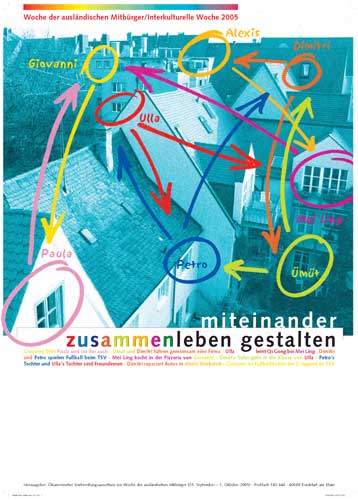Amazing electronic developments in Wismar:
bq. Wenn am 2. November 2005 der Justizminister des Landes Mecklenburg-Vorpommern, Erwin Sellering, im modernen Technologiezentrum in Wismar das TakeLaw-System eröffnet, dann könnte für die Welt der Rechtswissenschaft ein neues Zeitalter anbrechen. … Es geht darum, die oft unverständliche Sprache der Juristen in eine computergenerierte graphische Darstellungsform zu übersetzen. Diese Kunstsprache ist für die Rechtswissenschaft mit einem Kunstherz in der Medizin vergleichbar: Es sorgt dafür, dass der juristische Gedanke auch dann am Leben bleibt, wenn der eigentliche Motor der Rechtswissenschaft die Fachsprache nicht mehr verständlich ist. Die erforderliche Software dafür, der TakeLaw-Editor, wird ab dem 2. November 2005 über das Internet für jedermann frei zur Verfügung stehen (www.TakeLaw.de).
I will have to see this to have any idea what it means. Apparently software (freely available to all after November 2 on a site that at present offers nothing) will convert legal language by computer into a graphic form. This is compared with an artificial heart, because legal ideas remain alive even when the ‘real engine of jurisprudence, legal jargon,’ is no longer comprehensible.
What is more, it will enable automatic marking of tests:
bq. Nunmehr wird es möglich sein, juristische Übungsklausuren computergesteuert zu korrigieren. Die Korrektur ist mit einer ausführlichen Besprechung sofort verfügbar. Dazu vergleicht das System das Ergebnis der abgegebenen Arbeit mit der erwarteten Lösung und erläutert es dem Studenten. Dabei werden ihm nicht nur seine Fehler aufgezeigt, sondern auch die richtige Lösung über Lautsprecher oder Kopfhörer mitgeteilt. Gleichzeitig erkennt das TakeLaw-System Wissenslücken und stellt entsprechende multimediale Vorlesungen über das Internet zur Verfügung. Diese werden derzeit in Wismar in einem Tonstudio von insgesamt 12 Rechtsdozenten aus 9 Universitäten produziert.
bq. It will now be possible to mark legal tests electronically. The corrected version will be available immediately with a detailed discussion. This is produced by the system comparing the test submitted with the correct solution and explaining it to the student. The student is not only shown the errors – the correct version is also given, by loudspeaker or headphones. The TakeLaw system at the same time spots gaps in knowledge and provides multi-media lectures via Internet. These are being recorded now by a total of 12 law lecturers from 9 universities at a studio in Wismar.
All this sounds almost as difficult as machine translation. I imagine they can do multiple-choice questions online, and then supplement gaps in the person’s knowledge as seen by the system. But how can they translate legal jargon into graphics?
(Via Handakte WebLAWg)


